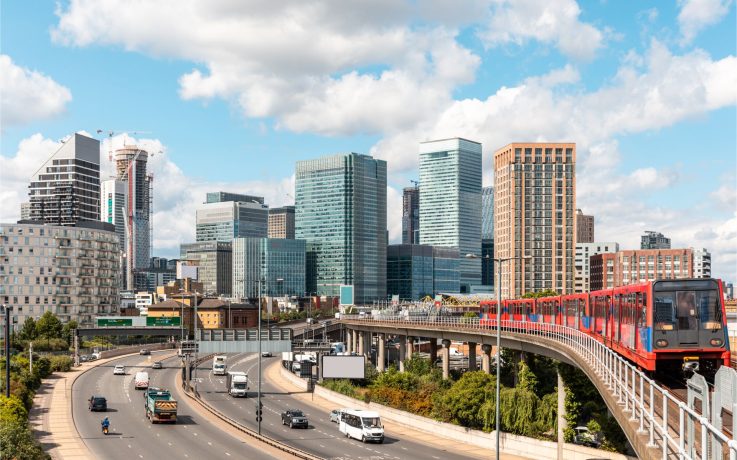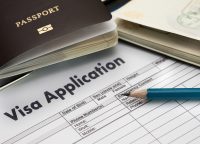UK Global Business Mobility Visas

The United Kingdom recently reviewed its immigration rules and cancelled some routes. New immigration categories were introduced to replace them. UK Global Business Mobility visas stand out among them. They allow foreign nationals to come to the UK for various work-related purposes: to set up a UK subsidiary, to take up an internship, etc. Overall, there are five visas under the UK Global Business Mobility scheme that are tailored to different needs. Though UK Global Business Mobility visas do not lead to citizenship, they offer more opportunities for entrepreneurs and high-skilled specialists.
Who Can Apply For UK Global Business Mobility Visas?
Each UK Global Business Mobility visa serves a particular purpose. Once your work is done, you will have to leave the country. To get an Indefinite Leave to Remain (ILR), you will need to switch to another visa.
UK Global Business Mobility visas are ideal for the following purposes:
- Setting up a UK subsidiary;
- Intra-company transfer;
- Internship leading to employment;
- Temporary service under an international trade agreement.
To understand whether you can apply for a UK Global Business Mobility visa, you need to consider the time you are going to work in the UK. If it is limited and you agree to leave the country once you fulfil your duties, you can use this immigration route.
UK Global Business Mobility scheme is still new to those who previously applied for the cancelled business visas. It is often criticised for its tight requirements for the period of stay in the country. However, the Home Office can extend your visa if you prove that you need more time to finish your work.
Despite some disadvantages, UK Global Business Mobility visas are beneficial for entrepreneurs. For example, a UK Sole Representative of an Overseas Business visa that was issued before allowed overseas companies to send only one top manager to the UK. In most cases, it was not enough to successfully run a UK subsidiary. Now, with five new UK Global Business Mobility visas, you can transfer both top managers and qualified specialists to the UK to ensure the highest quality of service to turn new leads into regular customers.
UK Global Business Mobility Visas
UK Global Business Mobility scheme includes five immigration categories:
- Senior or Specialist Worker visa;
- Graduate Trainee visa;
- Expansion Worker visa;
- Service Supplier visa;
- Secondment Worker visa.
An applicant for a UK Global Business Mobility visa must prove their qualification and get a certificate of sponsorship.
Certificates of sponsorship are issued by the applicant’s employer. For a company to issue a COS, it must be registered as a sponsor and obtain a sponsorship licence. The licence for each immigration category has its own requirements and niceties.
UK Senior or Specialist Worker Visa
This immigration category applies to senior and specialist workers who come to the UK to run a subsidiary here. They must have relevant qualifications and extensive work experience. This visa was designed to supply the UK with specialists from the shortage occupation list.
UK Graduate Trainee Visa
Every international company pays a lot of attention to staff training. Training for graduates can be offered in the form of an internship in a UK subsidiary. A UK Graduate Trainee visa was introduced for this purpose. To get a visa, applicants must meet the following requirements:
- An applicant must have a certificate of sponsorship;
- Training period is defined and limited;
- Internship must lead to employment.
UK Expansion Worker Visa
When a foreign company decides to enter the British market or expand its presence here, it may need to send a particular employee to the UK who will be responsible for setting up a subsidiary, hiring staff, taking care of the paperwork, etc. A UK Expansion Worker visa serves this purpose.
UK Service Supplier Visa
A UK Service Supplier visa is used to send a specialist to the UK on a short-term work contract. The visa is issued to both in-house employees and freelance workers staying in the UK under one of the international trade agreements. A UK company must have an A-category sponsorship licence to be able to issue a certificate of sponsorship to a service supplier.
UK Secondment Worker Visa
A UK subsidiary may sometimes need a high-value specialist. For example, when a particular job cannot be done by the existing workforce or a new project is to be launched. In this case, it is possible to post such a specialist to the UK on a UK Secondment Worker visa.
Old vs New Immigration Categories
Previous business visas issued to foreign specialists and trainees cannot be extended. Once they expire, you will have to apply for a new immigration category or leave the country. Since UK Global Business Mobility visas do not lead to an Indefinite Leave to Remain (ILR), the time spent on them cannot be included in the required period of stay in the UK for British citizenship.
A UK Intra-Company Transfer visa was replaced by a UK Senior or Specialist Worker visa, a UK Intra-Company Graduate Trainee visa by a UK Graduate Trainee visa, and a UK Temporary Workers International Agreement visa by a UK Service Supplier visa. As for a UK Representative of an Overseas Business visa, it was substituted by a UK Expansion Worker visa with some additional improvements. Now, this immigration route allows companies to post up to five specialists to the UK which significantly expands their business opportunities.
Validity of UK Global Business Mobility Visas
UK Global Business Mobility visas are issued for a limited period for a particular purpose. Once a senior or a specialist worker completes their task, they must leave the country. Each UK Global Business Mobility visa has a different validity period and does not lead to settlement or citizenship. If you plan to stay in the UK for good, you will have to switch to another visa.
The validity period for UK Global Business Mobility visas:
- UK Secondment Worker visa and UK Expansion Worker visa – up to 2 years.
- UK Graduate Trainee visa and UK Service Supplier visa – up to 5 years in any 6-year period.
- UK Senior or Specialist Worker visa – up to 5 years in any 6-year period if annual salary is less than £73,900 or up to 9 years in any 10-year period if annual salary is £73,900 or above.
The visa validity is determined by the certificate of sponsorship and British immigration rules. If the rules allow, the visa can be extended. If you change jobs or personal circumstances change, you can switch to another visa. Note that no Global Business Mobility visa leads to ILR.
Requirements for UK Global Business Mobility Visa Applicants
Requirements for UK Global Business Mobility visas are similar to other immigration routes. You must:
- Be older than 18 years old;
- Have clean criminal and immigration records and no debts;
- Be of good health, and test negative for tuberculosis (for more information, see the government website or contact immigration advisors);
- Have enough money to support yourself in the UK, till you receive your first salary, and pay an application fee and immigration health surcharge. The required minimum salary increases proportionately to the number of dependants you add to your application. Public funds are not available to visa applicants.
Can Applicants For UK Global Business Mobility Visas Add Dependants to Their Visa Applications?
On any UK Global Business Mobility visa, you can add family members to your visa application: spouse, partner (you need to prove that you share a household), and minor children who depend on you.
Get UK Global Business Mobility Visa
When you apply for a work or business visa, you are usually pressed for time. UK immigration rules are strict, so even a small error or mistype can cause visa refusal. To avoid this, it is recommended to contact experienced immigration advisors. They have in-depth knowledge of British immigration rules and vast expertise that allow them to collect all the required documents as quickly as possible, deal with weaknesses in your case, fill in the application correctly, and save the applicant’s time and effort.
What Are the Stages of the Visa Application Process?
- You contact an immigration advisor. They arrange a meeting with you, review your case, analyse potential compilations, and explain everything in detail.
- Your immigration advisor collects all the required documents during 1–3 weeks. Your visa application is filled in and submitted to the Home Office.
- The Home Office reviews your application. Your immigration advisor arranges for you to come to the visa centre to submit biometrics and have your photo taken.
- The application is processed within 3–6 weeks. Home Office sends you their decision. If your application is approved, your immigration advisors will help you with relocation.
FAQ About UK Global Business Mobility Visas
How does the Home Office decide who is eligible for a UK Global Business Mobility visa?
The Home Office uses a points-based immigration system to stay objective in its decisions to issue visas. The maximum number of points that you can get is 60. It is a guarantee for visa approval. The minimum passing score is 40 points. You get 20 points for your certificate of sponsorship. Other points are granted for meeting the eligibility requirements.
Are there any specific requirements for a UK Senior or Specialist Worker visa?
To get a UK Senior or Specialist Worker visa, you need to score 60 points. Note that points are given in certain order: you won’t be able to skip a step and correct the mistakes that prevent you from meeting a certain requirement. Here is the order in which the eligibility is checked:
- You have a certificate of sponsorship;
- Your occupation is from the list of eligible occupations (for more information, see the government website);
- Your salary is above the minimum (at least £42,400 per year).
Each step scores you 20 points.
How to obtain a UK Service Supplier visa?
To get a UK Service Supplier visa, you need to score at least 40 points: 20 points for your certificate of sponsorship and 20 points for an eligible occupation.







